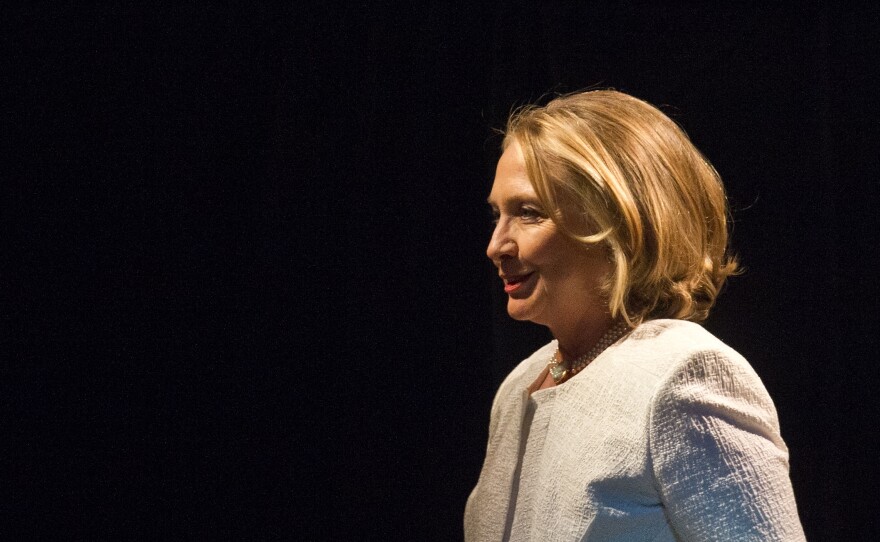Former Secretary of State Hillary Clinton hasn't said whether or not she's running for president in 2016. Indeed, if her husband, President Clinton, is to be believed, she hasn't even told him of her intentions.
Polling suggests, however, that among potential Democratic candidates, Clinton is the runaway favorite -- at least at this early stage.
All of which makes the stinging criticism Clinton has received from Republicans over the Benghazi attacks seem, to some Democrats, like a pre-emptive strike against her possible run for the White House in 2016.
The Sept. 11, 2012, attack on U.S. facilities in Benghazi, Libya, killed four Americans, including Ambassador Christopher Stevens. Republican critics have laid those deaths at the feet of President Obama and Clinton, accusing them of everything from incompetence to a political cover-up.
A Wednesday hearing by the House Oversight and Government Reform placed an inquisitorial spotlight on, among other things, Clinton's handling of Benghazi. It was just the latest marker in GOP efforts to ding Clinton.
Just days earlier, Rep. Darrell Issa, chair of the House panel, accused Clinton or her State Department staff of a "cover up."
That came on the heels of one of the most strident statements from a high-profile Republican. Sen. Rand Paul of Kentucky, who is displaying signs of being interested in a 2016 presidential run, recently told a Missouri audience that Clinton has disqualified herself for future public office by her actions.
"I think that her dereliction of duty -- I don't question her motives -- but her dereliction of duty and her lack of leadership should preclude her from holding any other office," Paul said to a crowd that responded with cheers and applause at a "Spirit of Reagan" award ceremony. (The moment is captured on a YouTube video at the 13:58 mark.)
Rep. Bill Huizenga of Michigan, who chairs the House Financial Services Committee, didn't go as far as Paul in a Wednesday radio interview, but he certainly didn't see Benghazi as helping Clinton.
"I don't know how this doesn't taint her reputation," he said. "She was the one out there real fiery in the Senate with some of those oversight hearings, sort of that famous phrase of, 'What does it matter now?' These details do matter."
But asked if the GOP Benghazi allegations were an attempt to damage Clinton before 2016 rolls around, he said: "Absolutely not.
"These things rise above any sort of partisan element. I mean this is about the response of our government and our responsibility, frankly, to our diplomats, the security that they have with them. This is really about the truth coming out and the lack of judgment that some of these decision makers had to make sure this never happens again."
If Clinton were to decide to run, the Benghazi accusations could conceivably place her on the defensive on national security, an area where Democrats have enjoyed an advantage over Republicans during the Obama presidency.
Clinton actually said: "What difference at this point does it make?" in an attempt to explain at a Senate hearing that getting inside the heads of the killers of the four Americans wasn't exactly her top priority.
From nearly the moment she said it, the line became a weapon in the hands of her political foes. They've used it to accuse her, and the Obama administration, of either not taking a terrorist attack seriously enough or trying to conceal it.
Clinton, who as first lady once accused her and her husband's political foes of a "vast right-wing conspiracy" is now being charged by her partisan opponents with being at the center of a left-wing conspiracy.
Democrats made their own accusations about Republican motives in going after Obama and Clinton. At the Wednesday hearing, at which three State Department whistle-blowers testified about the administration's alleged failings in Benghazi, Rep. Elijah Cummings of Maryland, said in his opening statement:
"Let me be clear: I am not questioning the motives of our witnesses. I am questioning the motives of those who want to use them for political purposes."
Copyright 2013 NPR. To see more, visit www.npr.org.






